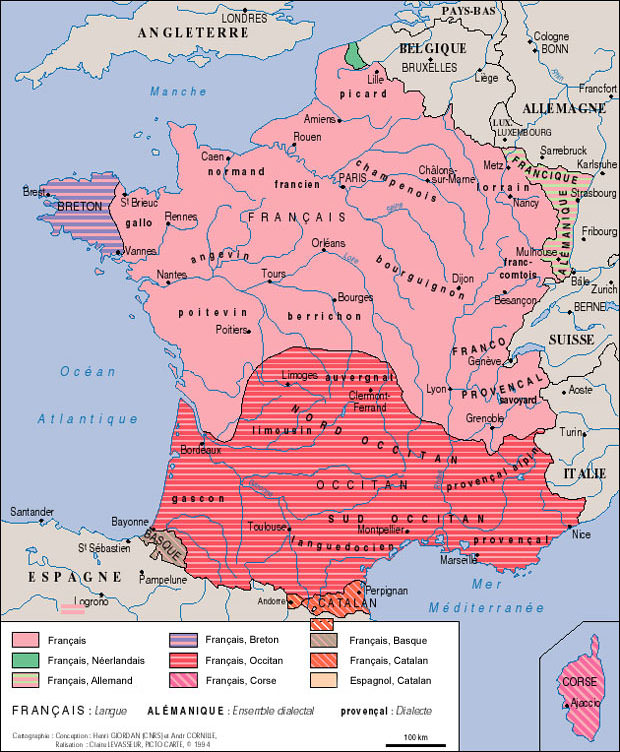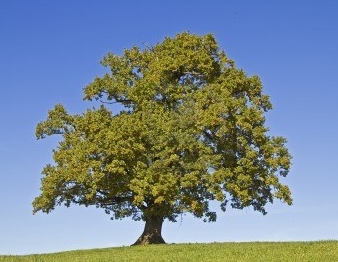
posted by Simon Kemp
One of the things you can study as a modern linguist at Oxford is linguistics, either within the French course or as a subject in its own right. Linguistics is the analysis of how languages work, and how they change over time. One option in our degree is a course that traces French right back to its roots, and then examines how it gradually develops over the course of centuries into the language we recognize today. I thought you might like a little taste of this, with a trip back through the mists of time to the earliest peoples to have left their mark on the French language: the Gauls, the Romans and the Franks. First up, the Gauls. ![gauls_color[1]](http://lurkio.co.uk/blog/wp-content/uploads/2013/02/gauls_color1.jpg) The Gauls were a Celtic people who settled France some time around 600 BC. They weren’t the first people to arrive in France: the cave paintings at Lascaux were painted fifteen thousand years earlier, and stone tools have been found in the Hérault département that date back one and a half million years. The Gauls came to dominate the culture and language spoken in the territory that would become France, however. Only the Basque language spoken in the far south-west and across the border in northern Spain preserves an echo of the speech of earlier populations. For French, the Gauls are our starting point. While the Gauls may be the ancestors of many modern French people (and many more, raised on the adventures of Asterix and Obelix, would very much like to think so), their language has left much less of an imprint on French than that of the invaders who were to conquer them, the Romans. Latin is the real root of modern French, as we’ll see in a later post, imported into France by the conquerors to be the language of trade and administration, and gradually filtering down to supplant the Gaulish language over the course of six centuries. Gaulish was not entirely wiped out, though: it survives as a language through Breton, one of the family of modern-day Celtic languages that includes Welsh and Gaelic. And if you look carefully you can find a few Celtic remnants scattered in the French spoken today as well.
The Gauls were a Celtic people who settled France some time around 600 BC. They weren’t the first people to arrive in France: the cave paintings at Lascaux were painted fifteen thousand years earlier, and stone tools have been found in the Hérault département that date back one and a half million years. The Gauls came to dominate the culture and language spoken in the territory that would become France, however. Only the Basque language spoken in the far south-west and across the border in northern Spain preserves an echo of the speech of earlier populations. For French, the Gauls are our starting point. While the Gauls may be the ancestors of many modern French people (and many more, raised on the adventures of Asterix and Obelix, would very much like to think so), their language has left much less of an imprint on French than that of the invaders who were to conquer them, the Romans. Latin is the real root of modern French, as we’ll see in a later post, imported into France by the conquerors to be the language of trade and administration, and gradually filtering down to supplant the Gaulish language over the course of six centuries. Gaulish was not entirely wiped out, though: it survives as a language through Breton, one of the family of modern-day Celtic languages that includes Welsh and Gaelic. And if you look carefully you can find a few Celtic remnants scattered in the French spoken today as well.

According to Henriette Walter, there are no more than about seventy words in modern French that are of Gaulish origin. As you might expect, they mostly relate to a simple life of hunting, fishing and farming, and include terms for common animals and plants. Une alouette (a lark), le mouton (sheep), la tanche (tench, the fish) are some of the creatures that still have Gaulish names. La charrue (plough), le soc (ploughshare), la mine (mine), le sillon (furrow), le gobelet (beaker) and le druide (druid) are a few of the surviving words that testify to the Gaulish way of life. There’s also one single part of the body that still has a Gaulish name, which is l’orteil (toe), plus an old-fashioned word for poo, le bran, which survived at least into the last century. Many of the other Gaulish words describe the natural world, such as la dune (dune), la bruyère (heather), le galet (pebble) or la lande (moor). Among these, since we’re talking about roots, a good number are types of tree, including le sapin (fir), le chêne (oak), le bouleau (birch) and l’if (yew). It’s nice to think that yew and oak trees in particular, often the most magnificent and ancient thing you’ll see in a landscape, are also magnificent and ancient in their names if you say them aloud in French. Le chêne and l’if are words which link the speaker right back to the time of Julius Caesar, and of the Gaulish chieftain Vercingetorix who led the Gauls in revolt against him, and further back to other people who saw these things around them and spoke their names, pronouncing them in a way that may not sound much like the modern names, but which have evolved gradually in an unbroken chain down a hundred generations to us today.


Very interesting! You could have included numbers (eg soixonte-dix, quatre-vingt) and phraseological verbs such as je viens de, je vais faire, je suis en train de.